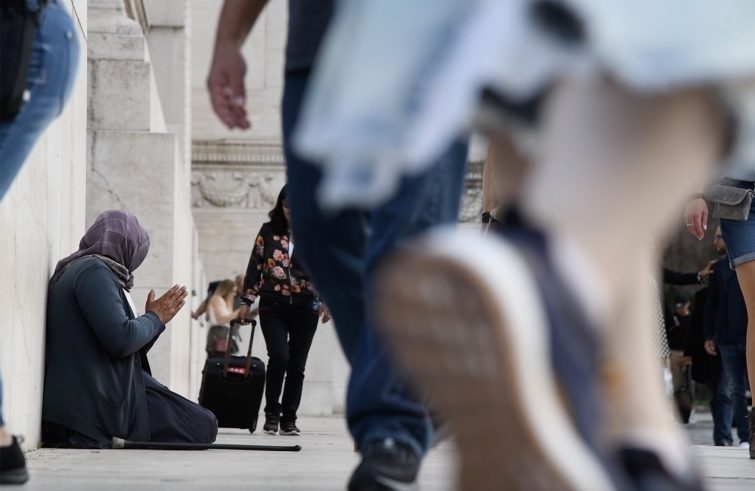
“The culture of care calls for a common, supportive and inclusive commitment to protecting and promoting the dignity and good of all, a willingness to show care and compassion, to work for reconciliation and healing, and to advance mutual respect and acceptance. As such, it represents a privileged path to peace”, the Pope writes in the concluding paragraph of his Message for the World Day of Peace, titled “A Culture of Care as a Path to Peace”, to be celebrated on January 1st. “In many parts of the world, there is a need for paths of peace to heal open wounds. There is also a need for peacemakers, men and women prepared to work boldly and creatively to initiate processes of healing and renewed encounter”. As the year 2020 marked by the massive Covid-19 health crisis comes to a close, we are called to “take up social principles as a compass capable of pointing out a common direction”, writes Francis.
In the opening lines of his Message the Holy Father pays homage to the victims of the health crisis and to all those – starting with physicians – who have made, and continue to make, great efforts to avert its devastating consequences, renewing his appeal to “political leaders and the private sector to spare no effort
to ensure access to Covid-19 vaccines
and to the essential technologies needed to care for the sick, the poor and those who are most vulnerable.” In condemning forms of “nationalism, racism and xenophobia, and wars and conflicts that bring only death and destruction in their wake”, Francis exhorts us “to care for one another and for creation in our efforts to build a more fraternal society.”
“Promoting the dignity of each human person, solidarity with the poor and vulnerable, the pursuit of the common good and concern for protection of creation”
are the four pillars drawn from the Church’s social doctrine underlying “a culture of care.” Human rights derive from the dignity of each person, as do human duties, “like the responsibility to welcome and assist the poor, the sick, the excluded, every one of our “neighbours, near or far in space and time.” “Every aspect of social, political and economic life achieves its fullest end when placed at the service of the common good,” “Consequently – Francis writes – our plans and projects should always take into account their effects on the entire human family, and consider their consequences for the present and for coming generations.”
Taking up the principles of the Church’s social doctrine as a compass basis for a culture of care these principles as “compass capable of pointing out a common direction and ensuring a more humane future”,
is the Pope’s invitation to “government leaders and those of international organizations, business leaders, scientists, communicators and educators.” For the Pope, “this will enable us to esteem the value and dignity of every person, to act together in solidarity for the common good, and to bring relief to those suffering from poverty, disease, slavery, armed conflicts, and discrimination.”
“I ask everyone to take this compass in hand and to become a prophetic witness of the culture of care, working to overcome the many existing social inequalities.” Francis’ appeal: “this can only come about through a widespread and meaningful involvement on the part of women, in the family and in every social, political and institutional sphere.”
“The compass of these social principles, so essential for the growth of a culture of care, also points to the need for relationships between nations to be inspired by fraternity, mutual respect, solidarity and the observance of international law. In this regard, we must recognize the need to defend and promote fundamental human rights, which are inalienable, universal and indivisible.”
“Numerous cities have become epicentres of insecurity”,
is the metaphor chosen by the Pope highlighting the need “to respect humanitarian law, especially at this time when conflicts and wars continue uninterrupted”, that bring “only death and destruction in their wake.” “How many resources are spent on weaponry, especially nuclear weapons, that could be used for more significant priorities such as ensuring the safety of individuals, the promotion of peace and integral human development, the fight against poverty, and the provision of health care”, Francis points out, reiterating the proposal to
“establish a Global Fund with the money spent on weapons and other military expenditures, in order to permanently eliminate hunger and contribute to the development of the poorest countries.”
“Educating people to care begins in the family”, and it is “one of the pillars of a more just and fraternal society”, Francis concludes, adding that “religions in general, and religious leaders in particular, can play an indispensable role in handing on to their followers, and to society at large, the values of solidarity, respect for differences, and concern for our brothers and sisters in need.”










